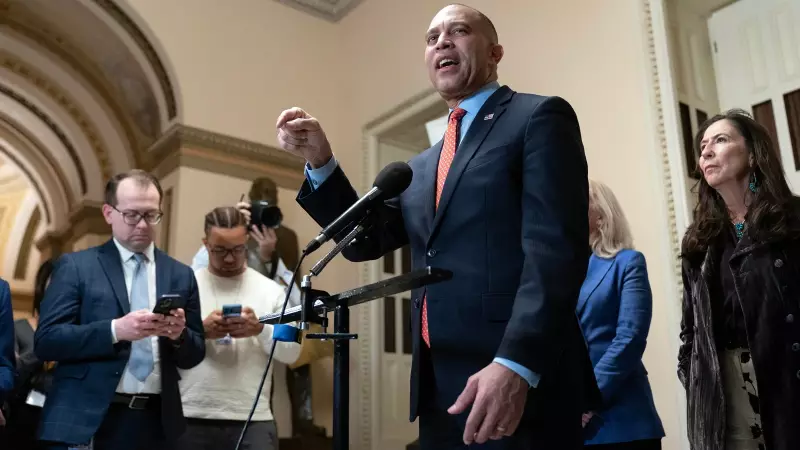
House Democrats have taken a firm stance against a Republican-proposed stopgap funding measure, setting the stage for a potential government shutdown as the September 30 deadline approaches. The opposition centers on significant cuts to healthcare programs that Democrats consider unacceptable.
Democratic Opposition to Healthcare Cuts
Top House Democrats, including Minority Leader Hakeem Jeffries, Whip Katherine Clark, and Caucus Chair Pete Aguilar, have unanimously declared their intention to vote against the continuing resolution. The proposed bill includes substantial reductions to healthcare funding that would impact critical programs serving vulnerable populations across the United States.
The Democratic leadership expressed particular concern about cuts to the Health Resources and Services Administration, which administers key healthcare services. They argue that reducing funding for this agency would directly harm access to medical care for low-income families and communities that rely on federal support for their healthcare needs.
Republican Strategy and Timeline Pressures
House Republicans, led by Speaker Kevin McCarthy, are pushing for a stopgap funding bill that would extend government operations through October 31. However, the proposal includes an 8% across-the-board cut to domestic programs, excluding defense and veterans affairs, which has become the primary point of contention.
With the current funding set to expire on September 30, lawmakers face increasing pressure to reach a compromise. The House Rules Committee is scheduled to consider the legislation, but without Democratic support, the bill faces significant obstacles in passing through the narrowly divided chamber.
Potential Government Shutdown Consequences
If Congress fails to pass funding legislation by the deadline, the federal government will partially shut down beginning October 1. This would result in the furlough of hundreds of thousands of federal employees and the suspension of many non-essential government services.
The healthcare sector would face immediate impacts, with potential disruptions to Medicare and Medicaid processing, public health surveillance, and medical research activities. Essential services would continue, but many healthcare administration functions could experience significant delays.
Both parties are now engaged in intense negotiations to find a path forward that avoids a shutdown while addressing concerns about healthcare funding. The outcome of these discussions will determine whether millions of Americans continue to receive uninterrupted government services or face the consequences of a federal shutdown.





